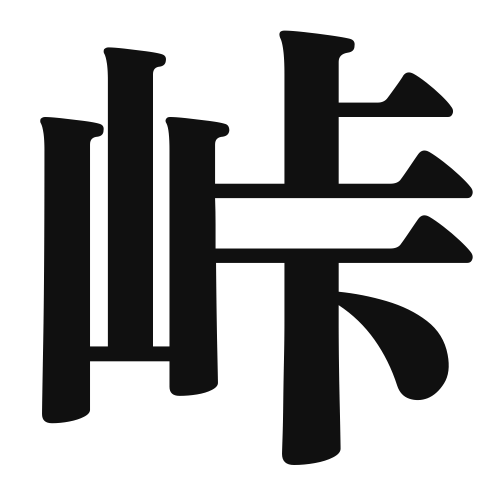1. Overview of Meaning
The kanji “峠” (pronounced “touge”) refers to a mountain pass or a peak. It signifies the highest point of a mountain road, often where travelers can cross from one side of a mountain range to another.
2. Formation and Radicals
The kanji “峠” is a combination of two components: the radical “山” (mountain) and the character “亘” (to extend). This formation indicates a connection to mountains and the idea of traversing or crossing over them.
The radical “山” is commonly associated with anything related to mountains, which is fitting for the meaning of “峠.”
3. Examples of Usage
Common words and phrases that include “峠” are:
- 峠道 (tougedou) – mountain pass road
- 峠を越える (touge wo koeru) – to cross over a mountain pass
Example sentence in daily conversation:
「この峠を越えれば、もうすぐ目的地です。」
(If we cross this mountain pass, we will soon reach our destination.)
4. Synonyms and Antonyms
Similar kanji with related meanings include:
- 山 (yama) – mountain, which refers to a larger landform without the implication of crossing.
- 峰 (mine) – peak, which emphasizes the topmost point of a mountain.
Antonyms include:
- 谷 (tani) – valley, which refers to a low area between mountains.
5. Cultural and Historical Background
The concept of “峠” is deeply rooted in Japanese culture, as many traditional routes and historical paths traverse mountainous regions. These passes have been significant for trade and travel throughout history.
In Japanese proverbs and idioms, “峠” often symbolizes overcoming challenges or reaching a critical point in a journey, reflecting the importance of perseverance in both physical and metaphorical journeys.
